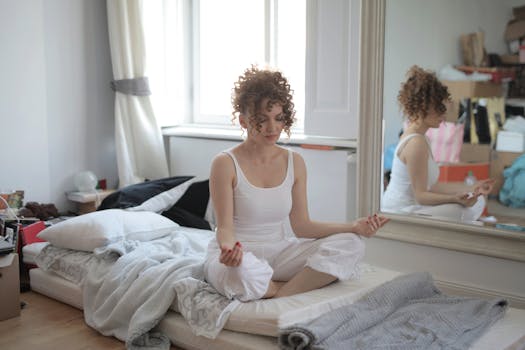The Connection Between Mental Health and Organized Spaces
It's often said that a cluttered desk reflects a cluttered mind. While this might be an oversimplification, there is considerable truth to the idea that our physical environment affects our psychological state. The relationship between mental health and organized spaces is rooted in aspects of environmental psychology that suggest our surroundings influence our emotions, cognition, and behavior far more than we might realize.

Consider the feeling of walking into a tidy room where everything has a place versus entering a space overwhelmed with clutter. The former often evokes a sense of calm and efficiency, whereas the latter can increase stress and anxiety levels. This isn't just anecdotal; studies have consistently backed up these experiences with data.
A 2009 study from the Personality and Social Psychology Bulletin found that women who described their living spaces as 'cluttered' or full of 'unfinished projects' were more likely to be depressed and fatigued than those who described their homes as 'restful' and 'restorative.' The researchers noted that the amount of clutter correlated with levels of cortisol, suggesting that disorganized spaces could contribute to stress.
So why does organization play such a pivotal role in our mental well-being? To explore this, we can divide the effects into three primary areas:
- Reduced Anxiety: Organized spaces can provide a sense of control and predictability. When each item has its place, there’s less cognitive load involved in processing the environment, which directly reduces anxiety.
- Enhanced Productivity: An organized environment minimizes distractions, making it easier to focus on tasks. This not only helps in accomplishing more but also in achieving a greater sense of personal efficacy.
- Improved Mood: A clean and orderly space can uplift your mood. This aspect ties into aesthetics; pleasing environments are inherently uplifting, contributing to overall happiness and tranquility.
The link between organized spaces and reduced anxiety is particularly compelling. Dr. Roster, an expert in consumer behavior, asserts that "clutter overloads your senses just like multitasking overloads your brain." This sensory overload is what often leads to increased stress. Therefore, maintaining an organized space allows for a clearer mental state and more manageable stress levels.
| Benefits | Explanation |
|---|---|
| Mental Clarity | Less physical clutter leads to clearer thinking. |
| Calmness | Aesthetically pleasing environments reduce stress. |
| Efficiency | Simpler environments enhance task management. |
In practice, how can one cultivate such organized spaces, especially when life feels inherently chaotic? Here are some actionable tips:
- Start Small: Instead of attempting to organize everything at once, start with a single drawer or shelf. Success in small areas can motivate you to tackle larger ones.
- Create Dedicated Spaces: Allocate specific areas for different items or activities. For instance, having a designated workspace can help mentally separate work from relaxation areas within your home.
- Maintain Regularly: Organization isn't a one-time task but a continuous process. Regular maintenance can prevent the build-up of clutter.
To contextualize these effects in an everyday scenario: imagine starting your day looking for workspace essentials scattered around your house versus beginning work at a neat, dedicated desk. The latter doesn’t just save time but also spares the mental energy that you'd have otherwise expended in sorting through messes. This brings us to reflect on how our environment’s state reflects back on us. If treating mental well-being is as multi-faceted as it seems, then nurturing organized spaces is undoubtedly one slice of this complex wellness pie.
Closing Perspective
The discussion doesn't end here, though. The simplicity or complexity of our living spaces is more than just an aesthetic choice; it's fundamentally about fostering an environment where our minds can thrive unimpeded by confusion or disorder. Each step towards organizing our surroundings doesn't just clear our space; it clears our mind too.
Rather than viewing housekeeping as just another chore, perhaps it's time to look at it as part of our mental health hygiene,a key component in crafting our own day-to-day tranquility. So next time you feel overwhelmed, maybe start by tidying up your desk or organizing your living room. You might be surprised at how much it lightens your mental load.